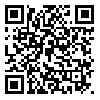Volume 28 - Supplementary
IBJ 2024, 28 - Supplementary: 254-254 |
Back to browse issues page
Download citation:
BibTeX | RIS | EndNote | Medlars | ProCite | Reference Manager | RefWorks
Send citation to:



BibTeX | RIS | EndNote | Medlars | ProCite | Reference Manager | RefWorks
Send citation to:
Sobhani A, Nikyar H, Ghasemi Z, Baradaranfard M. A Comparison of Aggression, Stress Levels, and Anxiety in Women with Type 2 Diabetes and Healthy Companions of Patients. IBJ 2024; 28 :254-254
URL: http://ibj.pasteur.ac.ir/article-1-4671-en.html
URL: http://ibj.pasteur.ac.ir/article-1-4671-en.html
Abstract:
Introduction: Diabetes is a progressive disease globally; its overall prevalence in adults is 529 million in 2021, of which approximately 95% are type 2. New estimates suggest that the global prevalence of type 2 diabetes will more than double by 2050. There is substantial evidence of the impact of psychosocial stress on disease risk, disease acceleration, and overall health. Also, psychosomatic conditions are related to blood sugar fluctuations and are effective in the occurrence of diabetes. Aggression is considered a significant factor in psychosomatic status. Also, work-related stress, especially in women, is associated with an increased risk of diabetes. However, there is little information on the effect of daily stressors on diabetes. Studies also provide conflicting results regarding the psychological effects of diabetes.
Methods and Materials: The present research is a case-control study. The samples included 50 women with type 2 diabetes and 50 healthy women from companions of patients referred to the internal clinic of Dr. Shariati Hospital in Isfahan in 2022. Inclusion criteria included informed consent and no other chronic diseases. Then, descriptive anthropometric data such as smoking, family history of heart disease, and blood pressure were collected from the patient through a questionnaire. Next, each person was given the "DASS21" stress test questionnaire and the "Bass and Perry" aggression questionnaire. In Iran, the Cronbach's alpha values for the "DASS21" questionnaire showed to be 1.04 for depression, 1.11 for anxiety, and 1.01 for stress. Additionally, the Cronbach's alpha coefficients for the "Bass and Perry" questionnaire in Iran were 70% for hostility, 79% for physical aggression, 82% for verbal aggression, and 71% for anger. The data were analyzed in two descriptive and analytical sections using SPSS 22.
Results: The results indicated that 42% of patients and 24% of companions were aggressive; there was a significant difference in aggression between diabetic patients and healthy companions (p = 0.044). Also, 46% of patients and 24% of companions had anxiety, with a significant difference (p = 0.038). Moreover, 50% of patients and 38% of companions experienced stress, but no significant difference was observed between them (p = 0.088). Aggression in women with type 2 diabetes was related to blood pressure, history of psychiatric problems in the family, and education. Stress was significantly related to smoking, heart disease, education, and marriage. Anxiety was also significantly related to marriage, smoking, heart disease, and a family history of psychiatric problems. Family history of psychiatric problems and smoking were among the most important predictors of psychiatric disorders.
Conclusion and Discussion: Diabetes was directly related to depression, anxiety, stress, and aggression. According to the findings of the present study and previous studies, it seems that attention to psychiatric disorders and the presence of a psychiatrist in the diabetes treatment team is necessary.

Methods and Materials: The present research is a case-control study. The samples included 50 women with type 2 diabetes and 50 healthy women from companions of patients referred to the internal clinic of Dr. Shariati Hospital in Isfahan in 2022. Inclusion criteria included informed consent and no other chronic diseases. Then, descriptive anthropometric data such as smoking, family history of heart disease, and blood pressure were collected from the patient through a questionnaire. Next, each person was given the "DASS21" stress test questionnaire and the "Bass and Perry" aggression questionnaire. In Iran, the Cronbach's alpha values for the "DASS21" questionnaire showed to be 1.04 for depression, 1.11 for anxiety, and 1.01 for stress. Additionally, the Cronbach's alpha coefficients for the "Bass and Perry" questionnaire in Iran were 70% for hostility, 79% for physical aggression, 82% for verbal aggression, and 71% for anger. The data were analyzed in two descriptive and analytical sections using SPSS 22.
Results: The results indicated that 42% of patients and 24% of companions were aggressive; there was a significant difference in aggression between diabetic patients and healthy companions (p = 0.044). Also, 46% of patients and 24% of companions had anxiety, with a significant difference (p = 0.038). Moreover, 50% of patients and 38% of companions experienced stress, but no significant difference was observed between them (p = 0.088). Aggression in women with type 2 diabetes was related to blood pressure, history of psychiatric problems in the family, and education. Stress was significantly related to smoking, heart disease, education, and marriage. Anxiety was also significantly related to marriage, smoking, heart disease, and a family history of psychiatric problems. Family history of psychiatric problems and smoking were among the most important predictors of psychiatric disorders.
Conclusion and Discussion: Diabetes was directly related to depression, anxiety, stress, and aggression. According to the findings of the present study and previous studies, it seems that attention to psychiatric disorders and the presence of a psychiatrist in the diabetes treatment team is necessary.

| Rights and permissions | |
 |
This work is licensed under a Creative Commons Attribution-NonCommercial 4.0 International License. |







.png)
